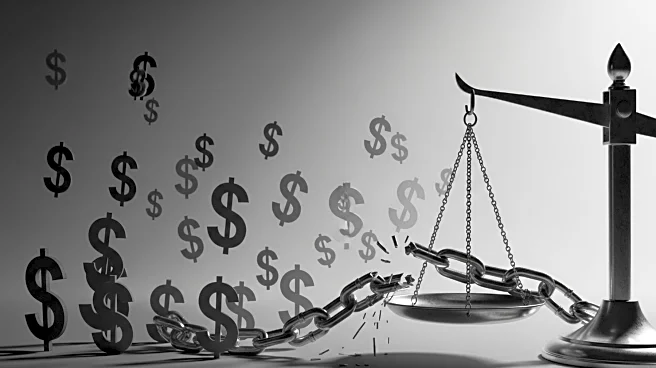What's Happening?
A study conducted by The Budget Lab at Yale has projected that current tariff policies under President Trump's administration could lead to nearly 1 million more Americans falling below the poverty line by 2026. The tariffs, which are designed to protect domestic industries, may inadvertently increase costs for consumers and businesses, potentially leading to economic hardship for many. The study suggests that the financial burden imposed by these tariffs could exacerbate poverty levels, affecting vulnerable populations across the country.
Why It's Important?
The potential increase in poverty levels due to tariff policies highlights the complex interplay between trade regulations and economic welfare. If tariffs lead to higher consumer prices, low-income families may struggle to afford basic necessities, thereby increasing poverty rates. This situation could have widespread implications for social services and economic stability, prompting policymakers to reconsider the balance between protecting domestic industries and ensuring economic equity. The findings underscore the need for careful evaluation of trade policies and their long-term impact on American society.










